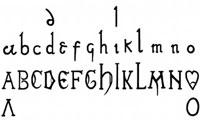Welcoming three Marie Curie Fellows to the Faculty
We are pleased to be welcoming three Marie Curie Fellows to the Faculty, who will be working on research projects across various departments.
Sejal Sutaria will join the Department of English, working on a project called The Making of Modernist Resistance, 1880-1950.
The project, which has been awarded £145k, will examine the shifting nature of literary and political contributions to activist movements made by four networks of British and Indian modernists in order to illuminate their integral role in creating what Sejal contends, is a distinctively modernist resistance. It will also explore the relationship between the ideologies of these networks to establish what the shift from spiritualism to secular socialist nationalism reveals about the nature of modernist resistance and the conditions of modernity that inspired it. The worldview underpinning this resistance was integral in defining the post-war identities of Britain and India as secular socialist-leaning democracies.
Alessio Sopracasa will be working in the Department of Classics, and Digital Humanities, on a project called Byzantine seals in a digital age: new tools for European research.
 As in most ancient and medieval societies, Byzantine documents were authenticated by seals containing descriptions of the persons responsible and their chosen iconography; they have the potential to fill something of the documentary void, if they can be made readily available in searchable form, and associated with other relevant sources. Over the years, scholarly understanding and analysis of Byzantine seals (sigillography) has been improving, but the resultant publications are mostly inaccessible. The project has been awarded £154K and will allow Alessio to become the first expert in ‘SigiDoc’ – publishing seals in EpiDoc – as a resource for scholars, teachers, and the curators who need to make their materials comprehensible to a wider public.
As in most ancient and medieval societies, Byzantine documents were authenticated by seals containing descriptions of the persons responsible and their chosen iconography; they have the potential to fill something of the documentary void, if they can be made readily available in searchable form, and associated with other relevant sources. Over the years, scholarly understanding and analysis of Byzantine seals (sigillography) has been improving, but the resultant publications are mostly inaccessible. The project has been awarded £154K and will allow Alessio to become the first expert in ‘SigiDoc’ – publishing seals in EpiDoc – as a resource for scholars, teachers, and the curators who need to make their materials comprehensible to a wider public.
Ainoa Castro joins the Department of History, on a project called Towards a typology of Visigothic script: the Beatus British Library Add. 11695 and its potential for dating and localising Visigothic script manuscripts.
 The main aim of the project is to establish a point of reference for the analysis of Visigothic script, the primary carrier of Latin writing in the Iberian Peninsula from the 8th to the 14th centuries. The research will create a computerised database of quantitative data by applying a specially designed method, a starting point that will allow codices written in Visigothic script to be described, compared and placed in their socio-cultural context. Innovative techniques for digital analysis of manuscript sources that will be acquired at King's will allow Ainoa to gain new insights into the analysis of the script while opening new avenues of research by applying digital tools to its study. The knowledge generated from the £145K funded project will be of great practical importance for future palaeographical and textual research establishing criteria upon which advanced studies can build.
The main aim of the project is to establish a point of reference for the analysis of Visigothic script, the primary carrier of Latin writing in the Iberian Peninsula from the 8th to the 14th centuries. The research will create a computerised database of quantitative data by applying a specially designed method, a starting point that will allow codices written in Visigothic script to be described, compared and placed in their socio-cultural context. Innovative techniques for digital analysis of manuscript sources that will be acquired at King's will allow Ainoa to gain new insights into the analysis of the script while opening new avenues of research by applying digital tools to its study. The knowledge generated from the £145K funded project will be of great practical importance for future palaeographical and textual research establishing criteria upon which advanced studies can build.